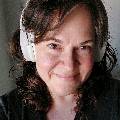
Kwa NateKo
@kwa · 4:51
Social Emotional Learning Curriculum and Clarity
I think when I started teaching, or at least tutoring and doing academic contact, I focused only on students in high school and you could say advanced math in high school, really, with standardized testing, which is not the same as advanced math and lower level college math, sometimes up to, like, sophomore level college math. Although I did do stuff all the way down to kindergarten. But now that what you find as you teach
So, is it the pedagogy that's in this particular curriculum that offers clarity for teaching just about anything, or is it this specific information about SEL that is offering insight about teaching anything? And I'm curious. I I don't know much about SEL

Kwa NateKo
@kwa · 4:52
I'm seeing how that planning process and trying to make it clear and anticipating how students will work with each other and anticipating how I engage with the students and seeing how I can make it easier and clearer to manage and execute is kind of the same as I would do math once I kind of understand the content better. So it's saying how I can sort of that same teaching skill I'm seeing now parallels between that and math and consequently maybe any other subject I teach
Swell Team
@Swell · 0:15
So it was how the curriculum was structured then that was helpful. Right. The reason I mentioned neurodivergency is because even in what you're describing when you said neurodivergence isn't a part of it, if you have neurodivergent students in your classroom that either do and or don't know that they're neurodivergent, they we experience emotions differently, read and interpret emotions differently, identify them differently, express them differently

Kwa NateKo
@kwa · 4:33
Particularly since, again, a lot of you kids in these programs have been in the program anywhere from starting at five or four to eight years old and now going up to 1314 and the latest. I think they might have joined his fifth grade, they might have been fifth or 6th, they might have been here two years as he 7th graded the program. So that's a little more context
It's interesting hearing about these particular exercises. And I'm sure this barely scratches the surface of all that the program is, but I will say, sort of offering a glimpse from this side of the divide. There is more of a divide there than you realize, because I'm just thinking about how I would have navigated these games at whatever age group. I can recognize patterns, I can mimic behaviors, do what I'm quote unquote, supposed to do

Kwa NateKo
@kwa · 4:53
So if you have a kid who's been here from pre K to 8th grade, it's a lot harder to hide who you are because parents have to share some of that because of requirements and because some of the environments, some of the kids, sometimes you're partly a sense raising and training these kids. So it's not like the teachers who have been there so there's some who've been in there for up to 18 years are people who know the kids as well as their parents do
There simply isn't enough awareness, let alone understanding. I mean, even if you talk to the professionals, it's almost laughable to hear some quote unquote professionals talking about either ADHD or autism, because they're doing it from the other side of a divide they're looking at

Kwa NateKo
@kwa · 4:26
No, I don't. And good morning. I don't disagree with the idea that a kid who is again, I you know, this is so far from my expertise. So I don't make the assumption that the kid is that is neurodivergent. That the diagnosis incognit situation. But I just reiterate the difference. I still think there is still room for development as a person in a program like this. In a way there's not for a school
